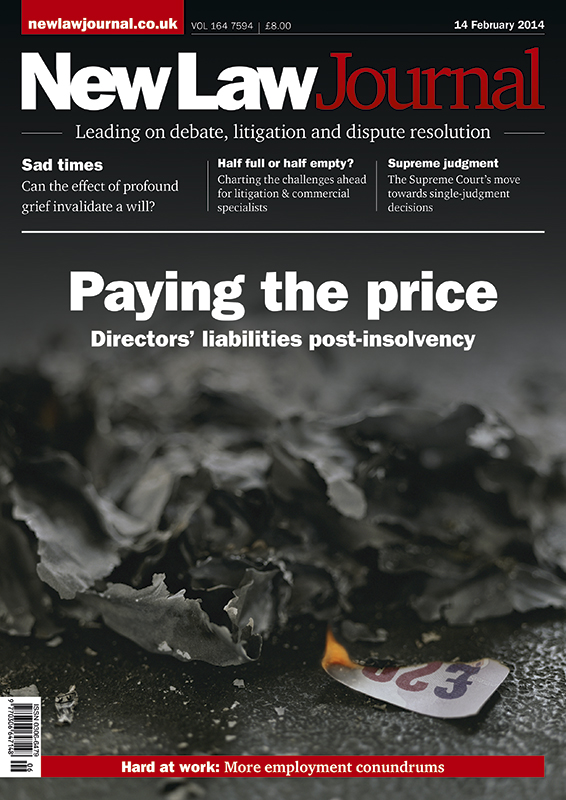
Ian Smith tackles a tricky employment law conundrum
Should defendants’ costs always be met by the claimants where proceedings are discontinued? Masood Ahmed & Ewen Archibald investigate
Ian Gascoigne & Hena Ninan discuss the outlook for commercial claims in 2014
MoJ proposals could “price claimants out of bringing a claim”
Court rejects union’s argument that tribunal fees are unlawful
House of Lords clarify shared parenting clause within Children and Familes Bill
Action "likely" after MoJ lays out response to consultation
ELA warning over HMRC plans to close tax avoidance loophole
Nearly one in five solicitors works in-house
President of ULaw retires after 18 years
MOVERS & SHAKERS

NLJ Career Profile: Mark Hastings, Quillon Law
Mark Hastings, founding partner of Quillon Law, on turning dreams into reality and pushing back on preconceptions about partnership

Kingsley Napley—Silvia Devecchi
New family law partner for Italian and international clients appointed

Mishcon de Reya—Susannah Kintish
Firm elects new chair of tier 1 ranked employment department








